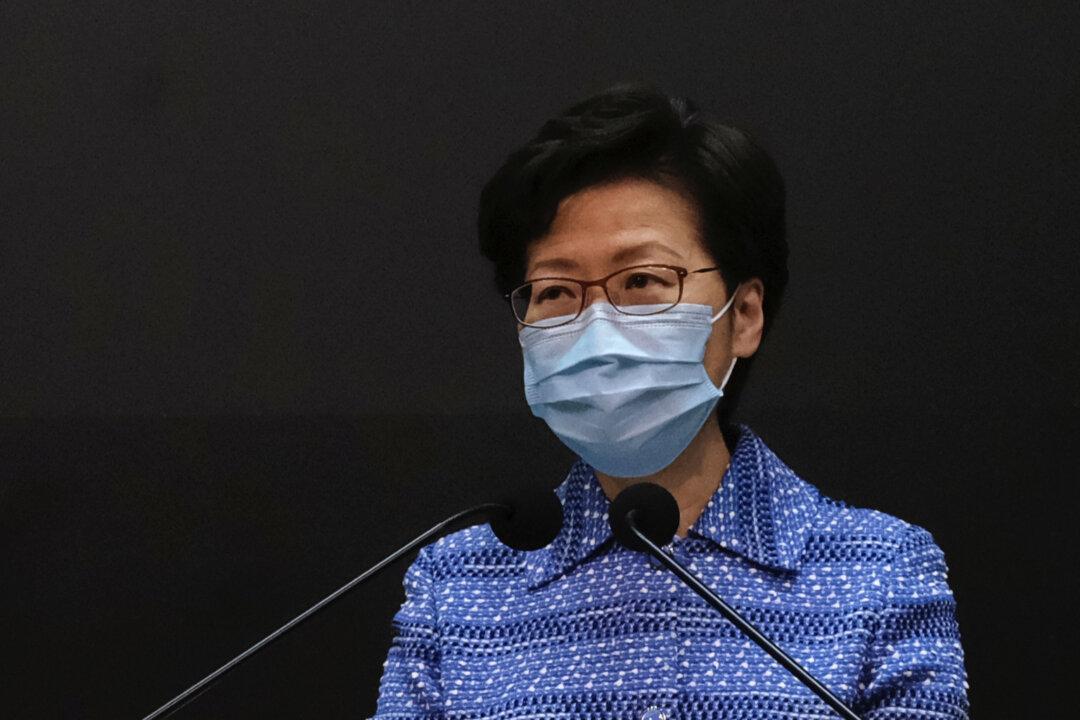Hong Kong leader Carrie Lam attempted to assuage concerns over risks to the city’s freedoms after Beijing proposed a “national security” law last week.
Lam, speaking at her weekly press conference on May 26, was asked by a reporter whether she could guarantee that Hongkongers could still protest on the streets, and voice their opposition to her policies and the Chinese Communist Party (CCP), if the proposed law from Beijing is enacted.





